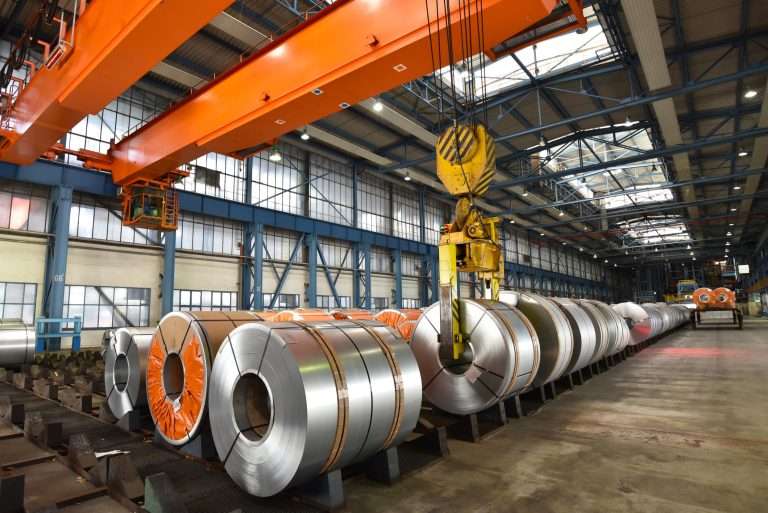Resources wasted on lobbying are yet another downside of protectionism.
In December 2023, US Steel agreed to a $14.9 billion buyout deal from Japanese rival Nippon Steel. That deal represented a massive premium on the company’s approximately $9 billion market capitalization, and would have netted shareholders a huge return on investment, while enabling Nippon to deploy much-needed capital into updating the Pennsylvania-based steel manufacturer’s operations. The political maelstrom that followed and US Steel’s response both illustrate the folly of newly-fashionable “industrial policy” ideas and lay bare the hidden costs of protectionism.
In the fervor of misbegotten economic nationalism that followed the merger announcement, politicians pilloried the deal as though the American people, rather than US Steel’s shareholders, owned the company. Democratic Pennsylvania Governor Josh Shapiro blasted the deal as “not something that would enjoy my approval,” while Joe Biden had the Department of Justice open an antitrust investigation. In stark contrast to saner times, the opposition to handsome profits crosses party lines, as Donald Trump said, if elected, “I would block it instantaneously. Absolutely.” Senator JD Vance said he would “oppose it in the months ahead.”
Politicians on both sides claimed that the deal was a threat to US national security interests and American workers. Never mind that US Steel is a company with $9 billion in market capitalization in a $25 trillion US economy, representing only 0.036 percent of the US economy. Never mind that US Steel was only the 572nd-largest US company as of December 2023. Never mind that Japan is a close US ally; selling US Steel to a company in a US-allied country (Japan) is a national security threat! In other news, Mexico has glaciers, and Greenland is balmy…
How did US Steel respond to this torrent of nonsense? By simply leaving a potential $6 billion gain over current share price (65 percent!) lying on the table? Of course not! They ramped up spending on lobbyists and outreach to congressmen, in an effort to beg for what should be a given—namely, the right to dispose of one’s property as one sees fit in a free society. The company spent money advertising at the Congressional Baseball Game and “printing its logo on foam bald eagles that were distributed to attendees.” What a ridiculous spectacle of waste.
How much better off might those steelworkers in Pennsylvania be if their company invested in the technology that would make the company more productive—and enable it to pay higher wages—rather than shilling in Washington? If cheaper, more efficient steel imports allowed US auto companies (which employ almost a million workers in the US, as opposed to only 84,000 in the iron and steel industries) to reduce car prices without hurting their margins, how many more cars could they sell? How many more people could they employ? How much could families needing cars save? The jobs never created, the lost income, and the lost opportunities for working families from protectionism need to be constantly kept in mind.
The ills attached to the now-fashionable idea of “industrial policy” and its concomitant, protective tariffs, are myriad and well-documented by advocates of free markets. Tariffs impose higher prices on consumers, make domestic producers slower to adopt technological upgrades, and make those same firms dependent on the taxpayer and government regulations rather than their own ingenuity for long-run prosperity. The government also has a horrible record of picking winners and losers. Just this week, Intel announced that it would cut 15,000 jobs, surpassing those it had hoped to create using federal CHIPS Act money.
Putting bureaucratic functionaries with little market prowess in charge of an “industrial policy” is, frankly, insane. Free market advocates can and should continue to highlight these costs of moving backward a hundred years in trade policy and economic freedom.
But we should also highlight the hidden costs of the political lobbying game that inevitably accompanies a world of restricted trade. Arbitrary tariffs and government intervention incentivize the kind of massive spending on lobbying that US Steel has engaged in while trying to save its merger. Lobbying is one of the least productive activities on Planet Earth. Its only purpose is to secure transfers of already-existing wealth using the government’s coercive power, not to create new wealth. The average Tanzanian farmer contributes more value to the world than the lobbyists who make millions arguing about trade policy.
With a robust commitment to free trade from the government, there is little incentive for lavish lobbying expenses. There is no world where Apple’s Tim Cook finds himself groveling to President Trump for tariff exceptions. That’s no fun for Washington’s unproductive yet sanctimonious protectionists. But it’s great for everyone else.
Additional Reading:
Do Americans Lose If U.S. Steel Gets Sold? Far From It by Walter Block





